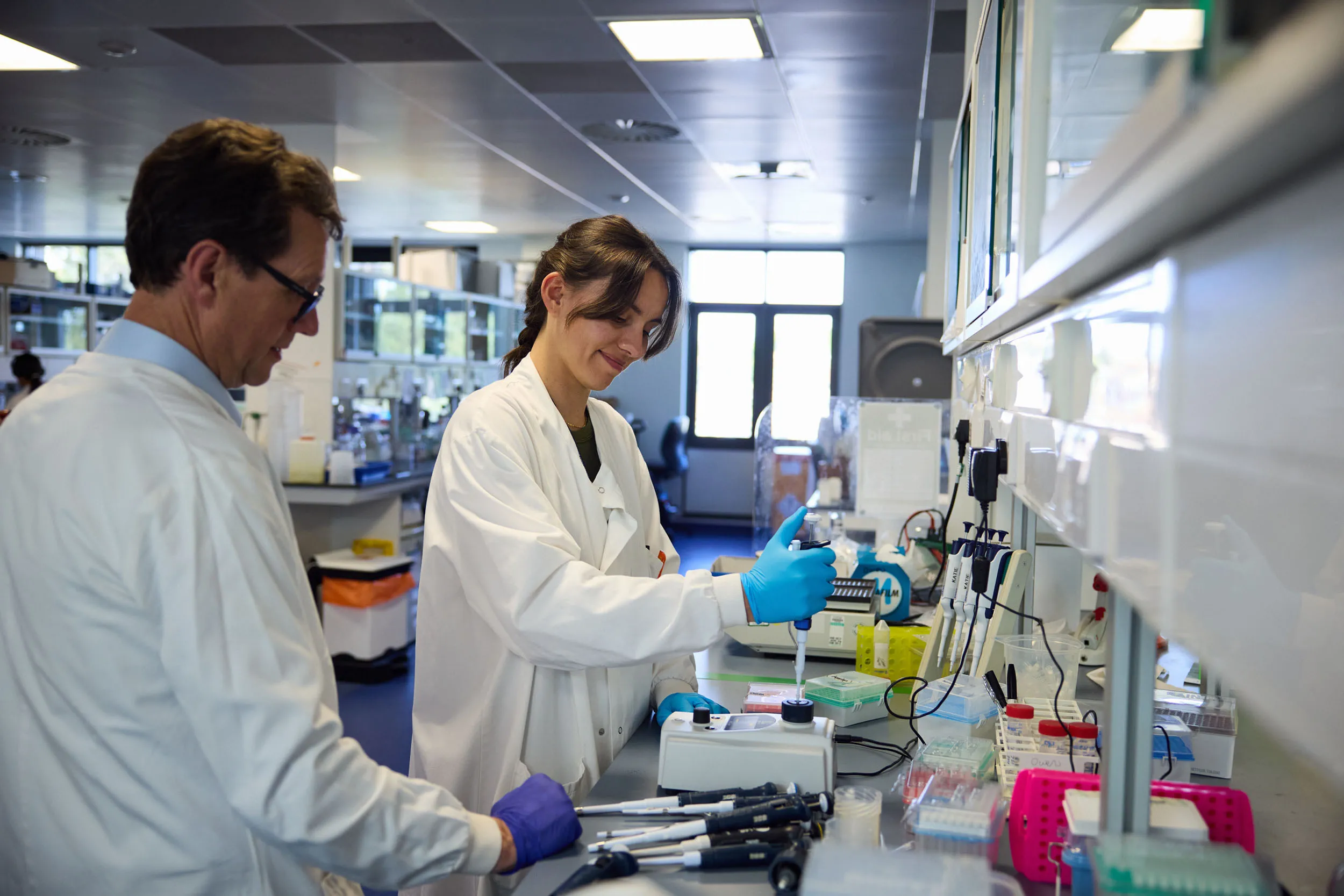
We take a look at some of the exciting diabetes research developments announced in May, and what the findings could mean for people living with or affected by diabetes.
In this month's article:
- Long-term benefits of weight loss and metformin in slowing type 2 diabetes progression
- New type 2 diabetes gene therapy moves towards clinical trials
- CGM protects the heart health of people with type 1 diabetes
Long-term benefits of weight loss and metformin in slowing type 2 diabetes progression
A long-running US study has shown that weight loss interventions or metformin can have lasting benefits in delaying or preventing type 2 diabetes, even 21 years later.
The study followed participants over two decades as part of the US Diabetes Prevention Program (DDP). The DDP started in 1996 to explore ways to delay or prevent type 2 diabetes in people at high risk who had prediabetes.
In the original three-year study, 3,234 participants with prediabetes were randomly assigned to one of three groups. One group followed a weight management intervention involving diet and exercise support. Another group took metformin. The last group received no active intervention but took a dummy tablet, also called placebo.
After three years, researchers found that the weight loss-focused intervention cut the risk of developing type 2 diabetes by 58%, while metformin lowered the risk by 31%, compared to the placebo group.
Yet the study didn't end there. Researchers continued to follow 3,195 participants who chose to stay involved. During this phase, the placebo group stopped taking the dummy drug, while those in the metformin group continued to receive treatment and the weight management group still received support through regular sessions.
The latest findings now show that the early benefits of both interventions made a lasting difference. Fewer people in the weight management and metformin groups developed type 2 diabetes over the next 21 years compared to the original placebo group.
Researchers found that the weight management group had a 24% lower risk of developing type 2 diabetes over this period and remained free from type 2 diabetes for an average of 3.5 years longer than the placebo group.
Participants taking metformin had a 17% lower risk and an average delay of 2.5 years.
The study also highlighted that metformin showed greater benefits in younger individuals, whereas the weight management intervention was most effective for people with higher blood sugar levels at the start of the study. This suggests that personalising prevention strategies could make them even more effective.
This study is published in The Lancet.
New type 2 diabetes gene therapy moves towards clinical trials
A US-based company announced a milestone in developing a first-of-its-kind gene therapy for people living with type 2 diabetes and obesity.
The treatment, called RJVA-001, works by delivering new genetic instructions to cells in the pancreas, allowing them to make GLP-1. GLP-1 is a hormone that’s produced naturally by the body and helps to:
- Release insulin when blood sugar is high
- Slow down digestion, so sugar enters the blood more gradually
- Reduce appetite, which can support weight loss.
The company has now submitted applications to start clinical trials of RJVA-001 with people with type 2 diabetes in 2026, pending regulatory approval. Researchers hope to share early results later that same year.
Current GLP-1 medications – like Ozempic or Mounjaro – are already helping some people with type 2 diabetes to lower their blood sugar levels, and to lose weight. But they can cause side effects like nausea, because they raise GLP-1 levels throughout the whole body. They also need to be taken as weekly injections.
RJVA-001 hopes to overcome these issues by helping the pancreas itself produce just the right amount of GLP-1, only when needed. The therapy is also designed to be given only once, through a quick, non-surgical procedure.
There’s still a long way to go, with multiple phases of clinical trials needed to build evidence to show if RJVA-001 is safe and effective. But it’s exciting to see innovative approaches moving from the lab and towards trials.
If successful, it could mean a major change in what living with type 2 diabetes looks like. Potentially transforming it from something that is managed with daily medication to a one-time treatment that offers long-lasting blood sugar control and weight management support.
CGM protects the heart health of people with type 1 diabetes
A new study from researchers in Sweden has found that using continuous glucose monitoring (CGM) can reduce the risk of heart problems in adults with type 1 diabetes who experience a severe hypo.
Researchers analysed health data from nearly 15,000 adults with type 1 diabetes in Sweden. They first explored if having a severe hypo – dangerously low blood sugar levels that require emergency help – could increase the risk of heart complications, like heart attacks or strokes. They also looked at whether using CGM could help to reduce that risk.
They found that people with type 1 diabetes who’d had a severe hypo were twice as likely to be admitted to hospital for heart complications than those who hadn’t. But that people using CGM had much better outcomes. They were 78% less likely to be hospitalised for heart problems compared to people using finger-prick blood sugar testing.
At Diabetes UK, we funded the world’s first clinical trial of new glucose monitoring technology, showing it radically improves blood sugar levels. This research helped shape NHS guidance that now means CGM is available to everyone living with type 1 diabetes.
These latest findings reinforce the power of the technology not just for better day-to-day blood sugar management, but also for protecting long-term health.
The study is published in Diabetologia.
